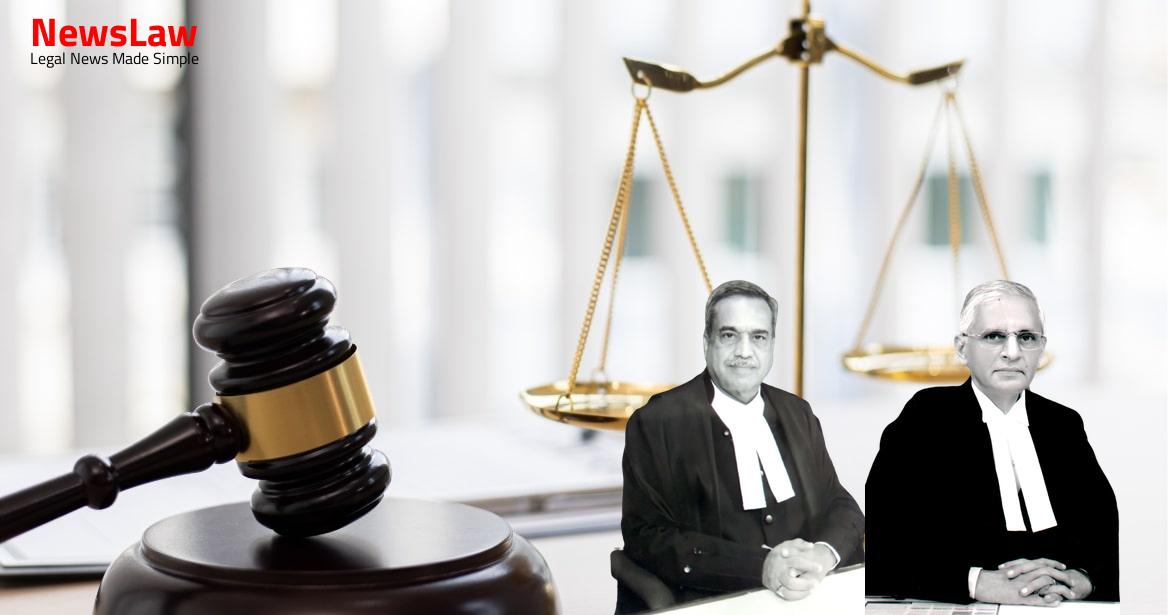Delve into the court’s thorough legal analysis of qualification requirements in recruitment rules in this case. The court examined the application of statutory rules, the authority of the state to set eligibility conditions for civil service recruitment, and the adherence to prescribed standards for education. Stay tuned for a detailed exploration of the legal intricacies surrounding qualification criteria in recruitment processes.
Facts
- The Indian Nursing Council Act, 1947 was brought into force on 31.12.1947 in Uttarakhand.
- Minimum qualifications for recruitment of Health Worker (Female) were 12 years of schooling before the selection year of 2010.
- The 1997 Rules for recruitment of Health Worker (Male) and Health Worker (Female) continued to remain in force in Uttarakhand.
- The UP Law was amended to include a definition of Auxiliary Nurse-Midwife, applicable from July 2012.
- Section 15-A of the INC Act provides for the establishment of an Indian Nurses Register by the council.
- The appellants, registered ANMs, challenge their ineligibility for certain appointments in Uttarakhand.
- The State of Uttarakhand was formed in 2000 following the reorganization of Uttar Pradesh.
- Regulations by the Indian Nursing Council regarding the Nursing Auxiliary Programme’s basic educational qualifications were amended in 2007 and 2016.
- An advertisement was issued by the Uttarakhand Government inviting applications for trained ANMs based on prevailing rules.
- The eligibility criteria in the advertisement required educational qualifications prescribed by the Indian Nursing Council and registration with the Uttarakhand Nurses and Midwives Council.
- The new 2016 Rules significantly amended the eligibility criteria for different years, requiring a minimum educational requirement of passing 12 years of schooling recognized by specific boards.
- A single judge of the High Court allowed writ petitions challenging the advertisement, leading to the aggrieved appellants approaching the Division Bench.
- The appellants argued that the advertisement was correctly framed as per the INC’s regulations that did not mandate science as an essential subject in qualifying examinations.
- Writ petitions were filed in the Uttarakhand High Court seeking a direction to set aside recruitment that was contrary to the rules for not specifically requiring science as a subject in schooling.
Also Read: Legal Analysis of Claim for Loss of Profit in Delayed Contract
Arguments
- The appellants argued that the U.P. Reorganization Act did not specifically adopt the Rules but there was no conflicting provision in the Act regarding the Rules.
- The Nursing Council prescribed regulations for course recognition under the 1947 Act, which only applies to standards set by the Council.
- The State has the authority to set eligibility conditions for civil service recruitment.
- The appellants believed they would be considered for employment in Uttarakhand after completing the ANM course and being registered.
- The State’s rule requiring Intermediate in Science for ANM recruitment was argued to be discriminatory.
- The advertisement criteria dictated eligibility norms and should be followed until the end of the recruitment process.
- The Council couldn’t determine employment conditions in a State, so the State has the right to set recruitment rules.
- Training by the UP Nurses and Midwives Council was not a requirement.
- Candidates without a Science background were deemed eligible for ANM roles for a period up to 2013.
- The State Rule 8 mandated Science stream qualification for ANM appointment, leading to exclusion of some candidates.
- The appellants were trained in ANM despite not having the Science qualification, urging against discrimination.
- The State’s adoption of the Council’s qualifications should have been sufficient for candidacy.
- The State’s adherence to its own standards in recruitment was stressed, especially regarding Science stream qualification.
- Appellants argued for a merit-based selection process instead of a Science stream requirement for ANM roles.
- The argument highlighted the lack of rationale in discriminating based on Science qualification in similar candidate groups.
- The appellants qualified in Arts at the time and believed they should be considered for ANM roles.
- The State’s rule on Science qualification was contested for its discriminatory nature.
- It was argued that the State could not be faulted nor bound down by the omission to advert to the relevant eligibility criteria in the advertisement.
Also Read: Public Declaration Requirement in Marriage under Hindu Marriage Act
Analysis
- Rule 8 of the 1997 Rules specifies the academic qualifications required for direct recruitment to the post of Health Worker (Male) and Health Worker (Female) in Uttar Pradesh.
- Rule 5(1) of the 1997 Rules pertains to direct recruitment of male candidates who have completed the basic health worker training course by the departmental divisional training centers.
- Rule 5(2) of the 1997 Rules pertains to direct recruitment of female candidates who have completed the basic health worker training course conducted by the Uttar Pradesh Nurses and Midwives Council.
- The construction of laws in relation to Uttar Pradesh or Uttaranchal can be facilitated by courts, tribunals, or authorities as per Section 87 of the administration of laws made before the appointed day.
- Rule 8(2) of the Reorganization Act outlines the qualification requirements for Health Worker (Female) in Uttarakhand.
- Rule 14(1) states the process of selection of candidates for training under Rule 8, as amended, outside the purview of the Public Service Commission.
- The selection of candidates for training should align with the number of vacancies and follow reservation provisions per Rule 14(2).
- The eligibility of a candidate for a public post is judged as on the last date of receipt of applications as per relevant advertisement and service rules.
- Advertisements constitute a representation to the public, and the issuing authority is bound by such representation.
- Rules in force in the erstwhile state of UP continued to remain operative upon the creation of Uttarakhand.
- The state is empowered to frame appropriate rules as a public employer.
- Candidates for ANM roles needed to complete mandatory training and possess an intermediate qualification in science.
- Appellants’ argument regarding batch-wise seniority for appointment was addressed by rule provisions for selection committee scrutiny.
- Modification or adaptation of laws within 2 years from the appointed day under the Reorganization Act did not nullify existing laws.
- The state was obligated to enforce existing statutory rules even if not explicitly mentioned in the adaptation order.
- Any argument that the UP rules were contrary to the INC Act was found insubstantial by the court.
- The requirement of intermediate in science stream for ANM roles was found essential and in accordance with the rules.
- The omission of educational qualifications in an advertisement did not release the state from adhering to statutory rules.
- Rules framed by the erstwhile state of UP remained applicable to Uttarakhand post its creation.
- Sections 87 and 88 of the Reorganization Act enabled adaptation of laws for effective application in the states.
- Applications must be judged based on the last date prescribed for filing the applications.
- The authority of the state to prescribe eligibility conditions for recruitment purposes is not undermined by the INC Act allowing the council to prescribe standards for education.
- Statutory authority has the right to establish rules regarding qualifications and conditions for holding a specific position.
- The ultimate decision regarding qualifications for a position rests with the relevant authority.
- The appeals are dismissed without any order on costs.
- The appellants’ contention fails in this regard.
Also Read: OCI Cardholders’ Rights and Retroactive Notifications
Case Title: SUMAN DEVI Vs. THE STATE OF UTTARAKHAND (2021 INSC 212)
Case Number: C.A. No.-000554-000557 / 2021



